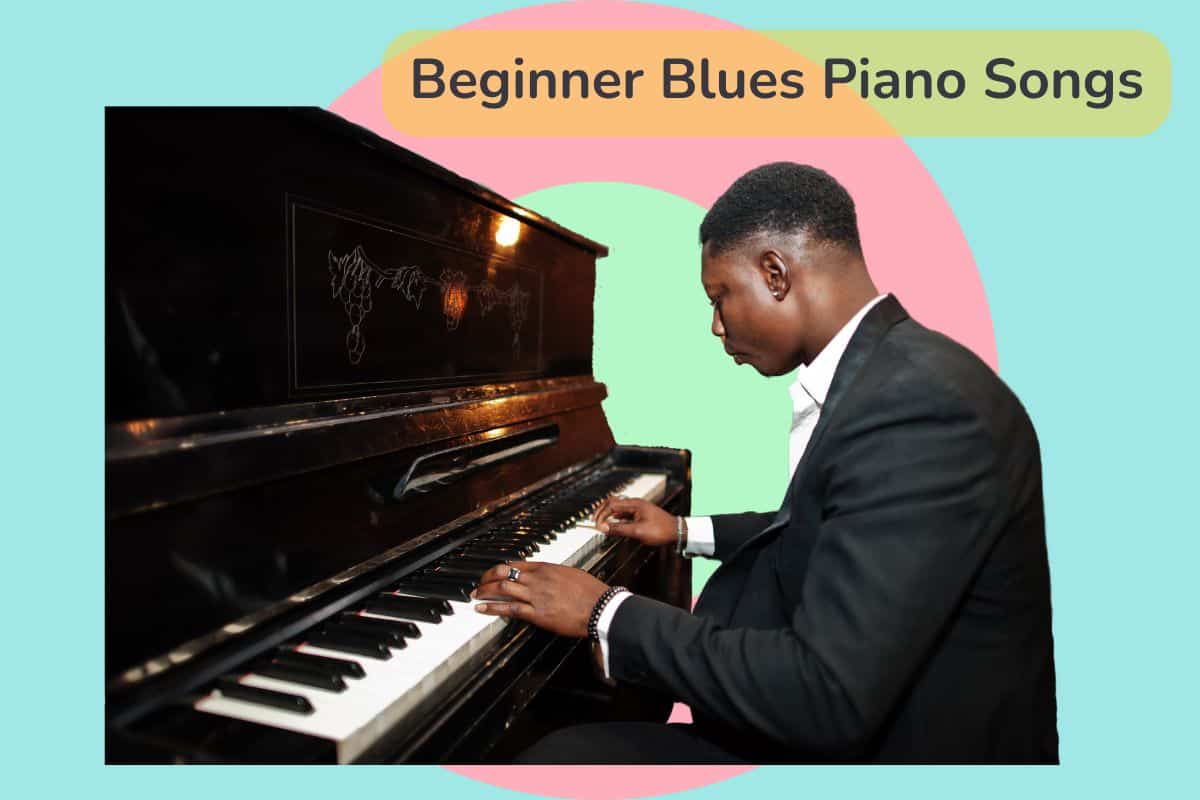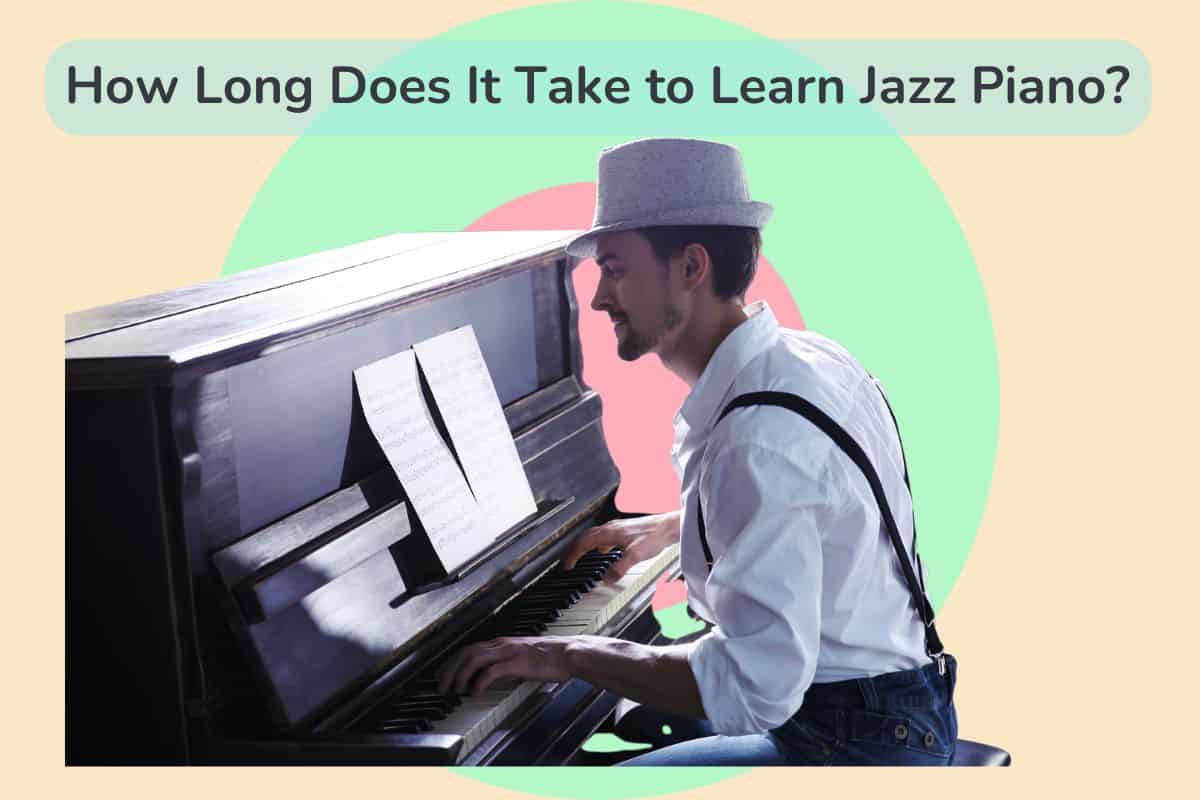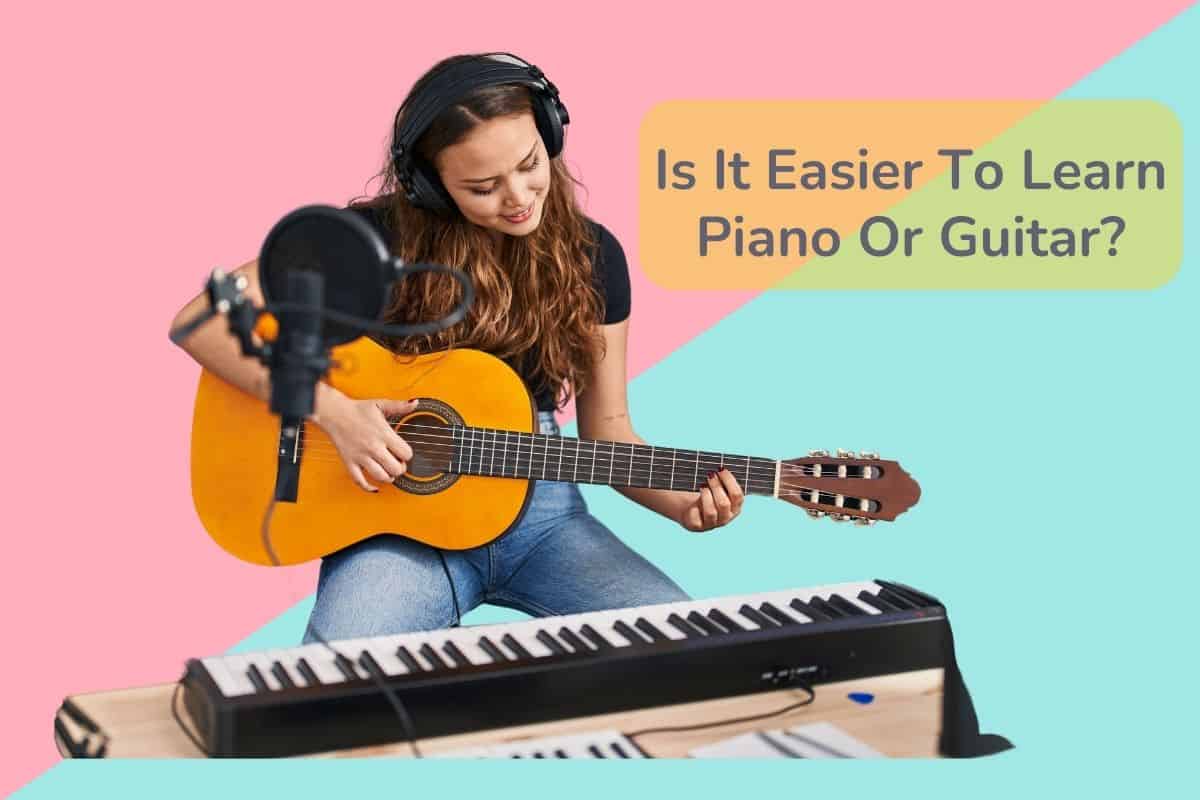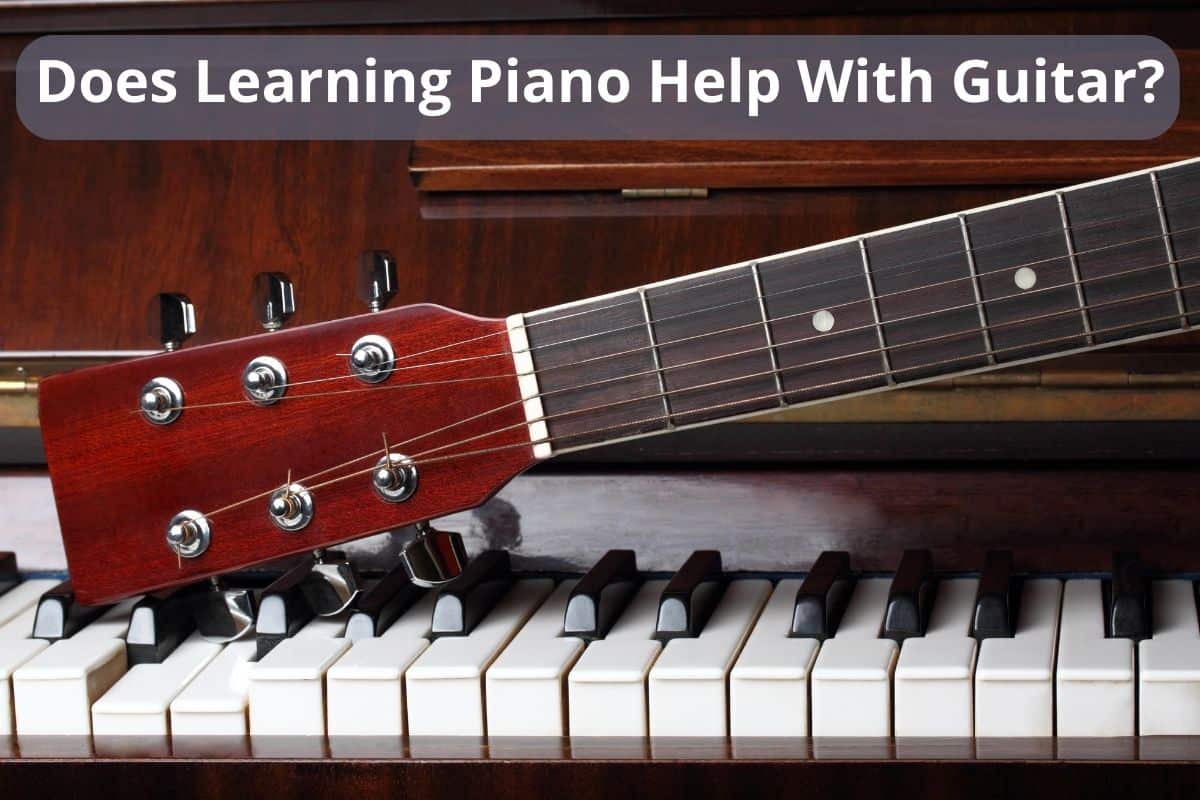Hey there, music lovers! Ever felt the urge to tickle the ivories but aren’t sure if you can do it solo? It can seem like a formidible task to play those songs you hear on the radio, especially if you’re considering teaching yourself.
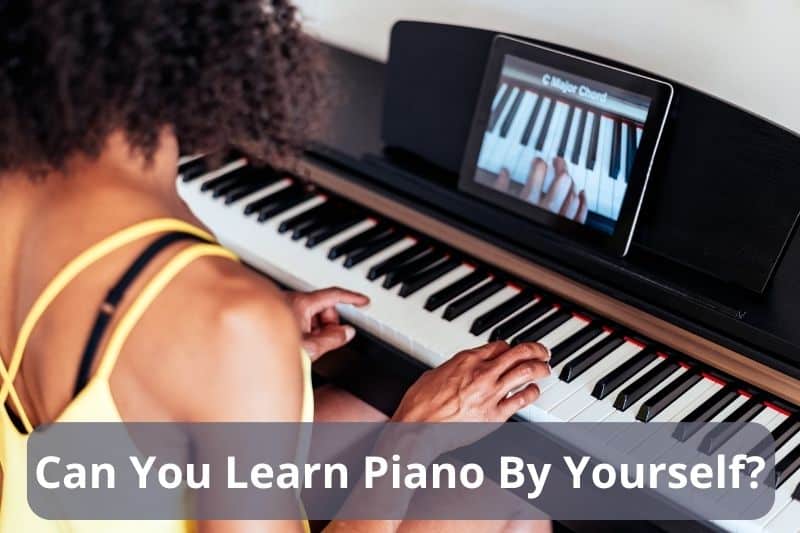
Can you learn the piano by yourself without ever stepping into a music school or hiring a piano teacher? Short answer – Yes, you can! With the help of online resources, learning materials, and establishing a consistent practice routine, anyone can master the piano at their own pace – right from the comfort of their own home. So, are you ready to embark on this exciting journey of self-discovery and musical growth? Let’s get started!
Key Takeaways
- You can successfully learn to play the piano by yourself with determination and the right resources
- Develop a practice routine and explore piano techniques for steady progress
- Stay motivated throughout your journey by leveraging online resources and focusing on your love for music
Can You Learn To Play Piano by Yourself?
Yes, you absolutely can learn how to play piano by yourself! It might seem like a daunting task, but with the right tools and resources, you’ll be playing your favorite tunes in no time.
Before you begin, make sure you have a piano or keyboard to practice on. A digital piano is a great choice, and you don’t have to break the bank. You can look for deals online or buy secondhand.
Once you have your instrument, it’s important to get familiar with it. Learn about the layout of the keys and how your fingers should be positioned. Proper body posture and positioning are crucial in avoiding discomfort or strain on your hands and wrists.
Now, it’s time to dive into learning the major keys and the sounds they make. These are the foundation of music, and understanding them will make your journey a lot easier. Spend some time getting familiar with the white and black key layout. You should also listen to the sounds that the different keys make and memorize their names.
After you’ve learned the basics, it’s essential to set a practice goal. Having a clear objective, like mastering a specific song or technique, will help you stay focused and motivated. Start by setting aside regular practice sessions, and don’t forget to practice your fingers with exercises to build strength and dexterity.
Remember to be patient with yourself. Learning piano is a journey, and it takes time to develop new skills. Enjoy all the little steps along the way, and most importantly, have fun! After all, playing the piano is all about enjoying and expressing the beauty of music.
Finding the Right Equipment
Choosing a Keyboard
Getting started with learning piano by yourself begins with finding the perfect keyboard. Don’t worry; you can easily find a keyboard that suits your needs and budget. First, decide between an acoustic piano or an electronic keyboard. Acoustic pianos have a lovely, traditional sound but can be expensive and require regular tuning. Electronic keyboards, including digital pianos, are affordable, portable, and have various digital features to aid in your learning process. Do some research and test different options at a music store to find the one that makes your fingers tingle with excitement!
Accessories for Learning
Once you’ve selected the ideal keyboard, it’s time to gather some essential accessories to help you learn piano comfortably and effectively. Here are some must-haves:
- A comfortable bench or seat: Make sure it’s adjustable so you can maintain the right posture while playing.
- A music stand: A sturdy music stand will hold your sheet music or tablet and make it easier for you to read and practice.
- A metronome: This handy tool will help you keep time and develop a steady rhythm in your playing.
- Headphones: If you opted for an electronic keyboard, headphones will allow you to practice without disturbing others.
Remember, investing in the right equipment will make your self-learning journey enjoyable and fruitful, so start exploring and get ready to tickle those ivories!
Establishing a Practice Routine
Learning piano by yourself is possible, but establishing a solid practice routine that’s effective is essential to make progress. In this section, we’ll cover two crucial aspects of your practice routine: setting goals and creating a daily practice schedule.
Setting Goals
Before diving into your practice, take a moment to set clear, achievable goals for yourself. Think about what you hope to accomplish in the short and long term. Do you want to be able to play a specific song or master a particular technique? Write these goals down, and don’t forget to revisit them as you make progress to stay motivated and on track.
Daily Practice Schedule
A consistent daily practice schedule is essential for improving your piano skills. Try setting aside a dedicated time each day for practice, and stick to it as much as possible. Here are a few tips to help create your daily practice schedule:
- Consistency is key: Aim to practice at the same time each day, which will help create a routine and make it a habit.
- Break it down: Instead of practicing for long, intense sessions, break your practice time into shorter, focused sessions. For example, spend 15 minutes on scales and another 15 minutes on a piece you’re working on.
- Mix it up: Vary your practice routine by incorporating different techniques, songs, and styles. This will keep your practice sessions interesting and improve your overall skill set.
Remember, practicing piano should be enjoyable and rewarding and not just an obligation. By setting realistic goals and establishing a consistent daily practice schedule, you can make the most of your self-taught piano journey. Keep it fun and stay committed, and you’ll surely see improvement in your piano skills.
Learning Piano Techniques
So, you want to learn piano all by yourself? Awesome! Let’s dive into some essential techniques and build up your music knowledge.
Understanding Music Theory
First things first, it’s time to get comfy with some music theory. Don’t worry; it’s not as scary as it sounds! You’ll just need to grasp a few basics, like:
- Notes: These little guys are the building blocks of music. Start by recognizing them on the keyboard.
- Scales: These are sequences of notes played one after another, like a musical ladder! Major scales are happy sounding, while minor scales tend to sound sad.
- Chords: Playing multiple notes at once create chords. They come in various flavors like major, minor, and 7th.
It’s easy to get overwhelmed, but this resource can help you out. Remember, practice makes perfect, so don’t stress if you don’t get it right away.
Essential Piano Techniques
Now that you have a basic understanding of music theory let’s jump into some piano techniques. Here are the key ones you should focus on:
Posture & Hand Position
Your piano journey starts with how you sit and position your hands. It might seem trivial, but trust me; body posture is super important for piano players. It’s vital that you learn good habits for comfort and avoiding pain when you are a beginner. Here’s what to do:
- Sit up straight at the edge of the bench, with your feet flat on the floor.
- Keep your elbows just over a right angle (~110°) and your wrists level with the keyboard.
- Relax your shoulders, don’t let them scrunch up!
Finger Numbers & Basic Exercises
To get your fingers in tip-top shape, you need some simple exercises:
- Assign a number to each finger: thumb is 1, index is 2, all the way to pinky as 5.
- Start with simple 5-finger patterns: play all white keys from left to right, then reverse.
- Try basic scales & chords: Start with a C major scale, and then create the chord (1, 3 & 5 fingers).
Ta-da! You’re off to a great start in playing piano by yourself. Keep up the good work, and remember, learning piano is a journey, so have fun and enjoy the ride!
Using Online Resources
Learning piano by yourself can be fun and rewarding, especially with the help of online resources. In this section, we’ll talk about apps and websites, as well as YouTube tutorials that can guide you in your journey to mastering the piano.
Apps and Websites
There are tons of apps and websites out there that can help you learn piano at your own pace. These tools often have interactive lessons, games, and quizzes that can make learning piano a blast! Some popular choices include Pianote, Playground Sessions, and Flowkey. With these apps, you can:
- Learn to play tunes without reading sheet music – yes, really! with Pianote’s Method
- Practice with fun exercises
- Track your progress
Give these a try and see which one works best for you!
YouTube Tutorials
Don’t underestimate the power of YouTube tutorials! Many talented pianists and teachers post videos that can help you learn new songs, techniques, and music theory. This article has 29 of the best teachers to get you started. There are many that offer a vast library of lessons for different skill levels, from complete beginner to more advanced.
You can find many different piano tutorials and ways to learn that will help you to start playing and improving your techniques. Here’s what you can expect from YouTube tutorials:
- Step-by-step instructions
- Visual demonstrations
- Tips and tricks from experienced pianists
Remember to take your time, practice regularly, and enjoy the process. Happy piano playing!
Staying Motivated on Your Journey
Learning piano by yourself can be challenging, but it’s also incredibly rewarding. To keep your motivation high, try setting small, achievable goals for yourself. When you reach them, celebrate your success! Don’t forget to track your progress, as it’s easier to stay motivated when you can see how far you’ve come.
Switch it up! Don’t just stick to the same songs and techniques. Explore different styles of music and find pieces that excite and inspire you. Remember, you’re more likely to practice and continue learning if you truly enjoy what you’re playing.
Get involved in a community of piano enthusiasts, like online forums, or even joining a local piano group. Discussing your progress and learning tips from others will help keep your motivation strong. Plus, you’ll make new friends who share your love for the piano!
Playing for friends and family is a great low-pressure way to share your progress. Their encouragement can motivate you to practice even more. Seeing their reactions to your music can be incredibly inspiring and push you to new heights on your piano journey.
Remember, everyone has off days, and it’s okay to feel unmotivated sometimes. When you’re in a slump, take a step back and remind yourself why you fell in love with the piano in the first place. Listening to your favorite pianists or watching their performances can rekindle your passion and get you back on track.
In summary, keep your goals attainable, mix up your practice routine, involve yourself in a piano community, and share your progress with loved ones. Most importantly, stay positive and have fun on your exciting journey of learning piano by yourself!
Final Thoughts
So, you’ve made it this far, and guess what? You absolutely can learn piano by yourself! With dedication and the right resources, teaching yourself piano will be a fun and rewarding journey. Remember, the key to success is practicing regularly and staying committed.
First, ensure you have a good piano or keyboard to get started. From there, choose a learning method that suits your needs and schedule. There are many online piano resources that can help you reach your goals.
Don’t be afraid of challenges. Learning piano by ear can be frustrating, but it can also help your ears learn faster. Start with slow songs and practice matching the melody with your right hand. Once you’re comfortable, move on to your left hand.
Whether you’re teaching yourself or considering piano lessons, the most important thing is to have fun and enjoy the process. Good luck, and happy piano playing!
